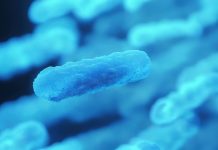The COVID-19 pandemic has provided a number of lessons regarding the critical impact of environmental pollution on human health
The first lesson is that exposure to environmental pollutants increases the severity of COVID-19 disease. This is exemplified by two recent studies that identified a strong link between air pollution and higher rates of COVID-19-related deaths. In one study, researchers at Harvard University in Boson, Massachusetts concluded that an increase of only 1 µg/m3 of PM2.5 (the fine particulate matter suspended in the air) is associated with a 15% increase in the COVID-19 death rate. In the second study published in the journal Environmental Pollution, scientists in Italy reported that the high death rates from COVID-19 in northern Italy correlate with the highest levels of air pollution in Italy. These findings suggest that people in polluted areas are far more likely to die from the new coronavirus than those living in cleaner areas. This knowledge should be leveraged by governments to decide how to deploy resources to deal with the pandemic, and how to ease back towards normalcy after lockdown.
How exposure to environmental pollutants influences individual susceptibility to coronavirus infection has yet to be determined. One theory is that exposure to environmental chemicals or other environmental pollutants weaken immune defences and/or compromise the function of organs targeted by the coronavirus, including the respiratory tract, the cardiovascular system and the brain. Alternatively, environmental chemical exposures may indirectly influence the severity of COVID-19-related disease by increasing individual risk for health issues associated with increased risk of death from COVID-19. For example, pre-existing asthma, diabetes, obesity, and cardiovascular disease worsen the prognosis for those with COVID-19, and each of these disease and health conditions have been linked to exposure to environmental chemicals and other pollutants in both animal models and human epidemiology studies.
The second lesson emerging from the COVID-19 pandemic is that environmental pollution levels can be dramatically decreased by altering human behaviour, and that such changes do translate into positive impacts on human health. For example, the shuttering of factories, and the significantly reduced vehicular and air travel as a result of global lockdown has noticeably reduced air pollution worldwide. PM2.5 levels in the air have decreased significantly, particularly over cities, and the European Space Agency captured vanishing nitrogen dioxide pollution over northern Italy as the country entered lockdown. Predictions of the human health impacts of this decreased air pollution suggest that the global lockdown saved more lives by preventing pollution than by preventing infection. As of late April 2020, the world’s death toll from COVID-19 was approximately 200,000; the global death toll from air pollution is estimated by the World Health Organisation to be 7 million people per year. Recent estimates are that the lives saved due to reduced air pollution are roughly 20 times the number of lives that have been directly lost to the virus.
The lessons we are learning during the current pandemic highlight the need to enforce and perhaps even strengthen existing environmental pollution regulations. Failure to do so could potentially increase the COVID-19 death toll. This realisation raises significant questions about the United States Environmental Protection Agency suspension of its enforcement of environmental laws on 26 March 2020. It is also essential to realise that other epidemics and pandemics are likely. Implementing policies and lifestyle changes to reduce human exposure to chemicals and other environmental pollutants that compromise our health and resistance to pathogens will be a critical component in preparing for the next viral threat.








